
About This Quiz
There's a reason Bible study is a common practice among those of the Christian faith. There's so much to learn that daily devotions are required to soak up the endless information. Have you studied enough of the Bible to know all of its teachings? Here's a quiz where you can find out just that.Â
Though different sects of Christianity contend that there are a different number of books in the Bible, most of these groups recognize at least 66 of the books to be legitimate. Of those books, there are 40 different authors with some living hundreds of years apart. That's a lot of information for even the most faithful believers to soak up and memorize.
Did you start learning the Bible early enough to obtain its vast wealth of knowledge? Have you even read the entire thing from cover to cover, including every book and passage? Maybe you have a grasp over the New Testament and the teachings of Jesus, but some of those Old Testament stories were lost on you when the preacher went through them.
When you're ready to put your faith to the ultimate test, get started with this quiz and see if those Sunday school lessons can pay off.Â

According to biblical tradition, Adam was the first man raised by God from the dust after the earth was created. Once Adam was formed, God took one of his ribs and made the first woman, Eve.

Coming after the tree of life and the tree of knowledge of good and evil, the third tree to come up in the Bible is the fig tree. The fig tree is discussed several other times throughout the book, often representing prosperity.
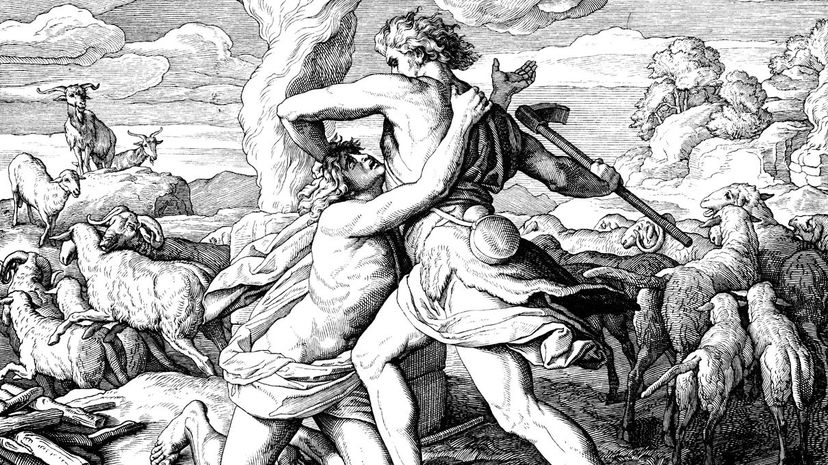
Cain, who was born first, was given the responsibility of tilling the land, while Abel took on the role of the shepherd. Each brother gave an offering to God from what they produced, but God favored Abel's offering, leading to Cain's jealousy.
Advertisement

The story of Noah depicts him as a man of righteousness caught up in a world of violence. God sought to punish those who disturbed the planet he created, so he caused a great flood. However, since Noah was a good man, God decided to spare his life.
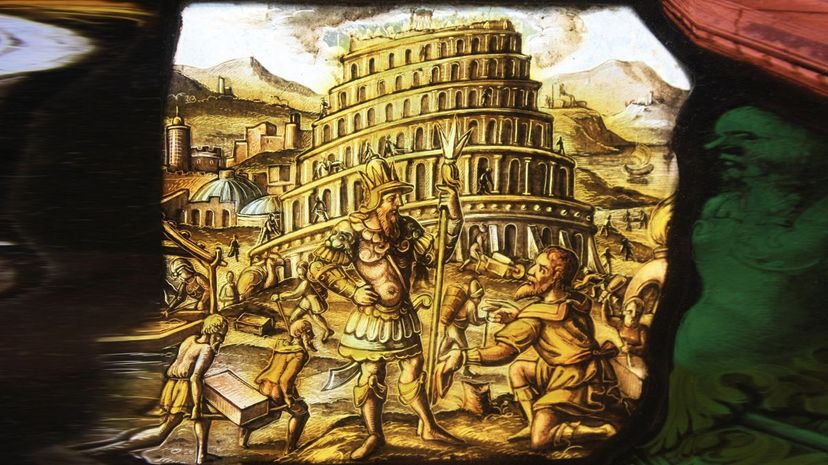
The Tower of Babel shows why the separate peoples of the world speak different languages. In the story, God was worried about what people could do if they worked together after they created the tower, so he split them apart to slow their progression.
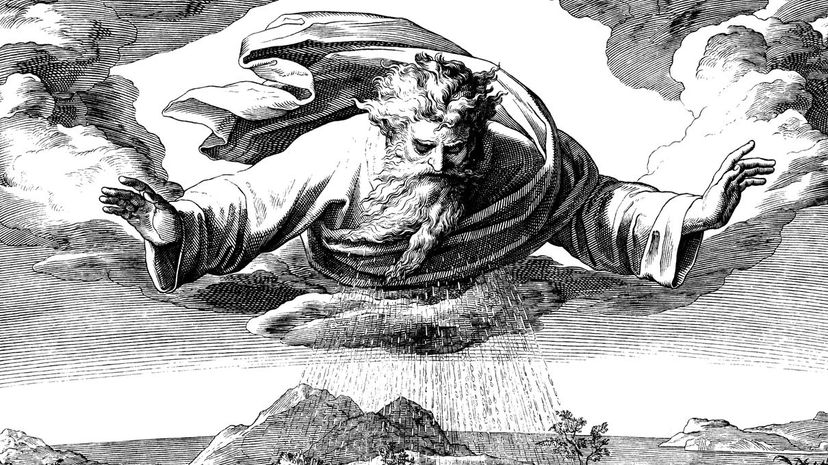
God's wrath in the Old Testament often knew no bounds, especially when it came to punishing the unfaithful. Fire and brimstone were one of the most popular punishments, which usually struck fear simply as a threat.
Advertisement
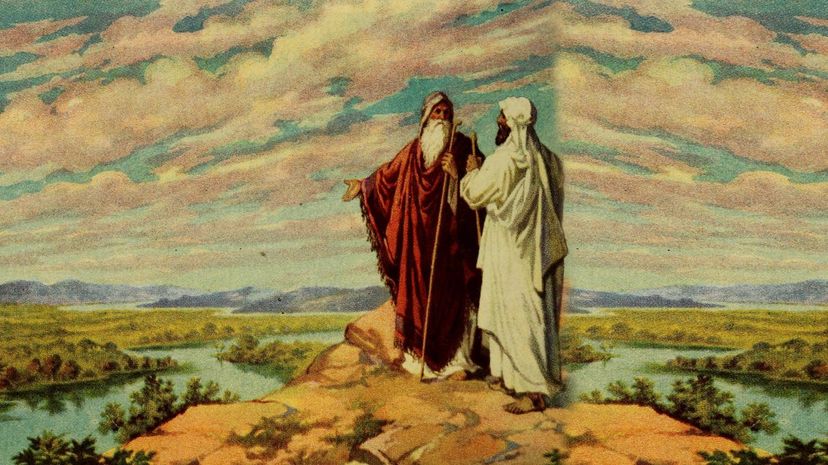
To show his dedication to the Lord, Abraham was told to bring his son to Moriah and sacrifice him in the name of God. However, the sacrifice was interrupted by God, and Abraham was informed that his decedents would grow substantially because of his loyalty.

When Jesus talks about heaven in the New Testament, he describes it as a place of many rooms. When he returns to Heaven, it is to prepare it for those followers who will come after him.
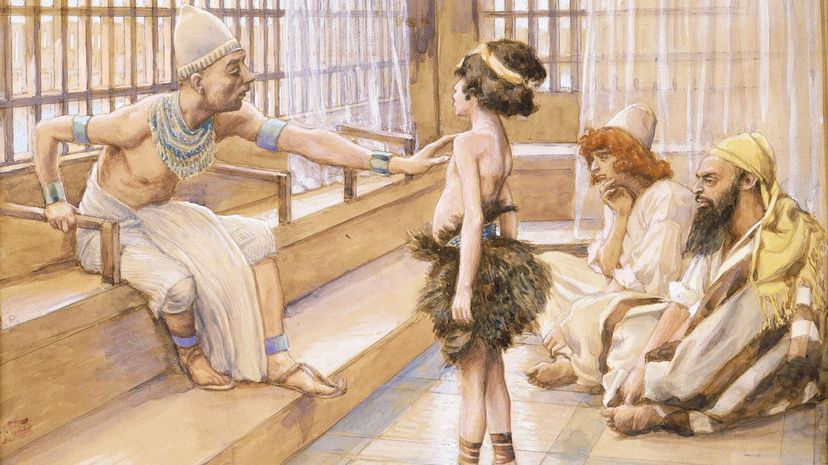
After Joseph is sent to Egypt by his jealous brothers, he is sold as a slave to a soldier named Potiphar. While in Egypt, God watched over Joseph, helping him to stop a famine that won him the good graces of the king.
Advertisement
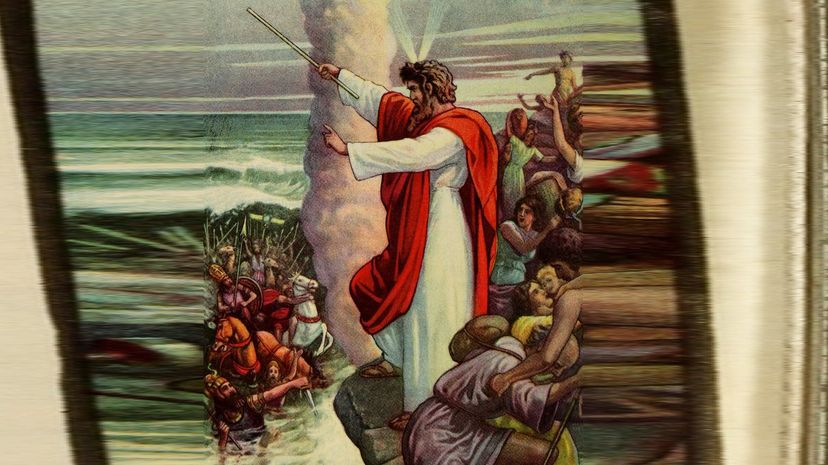
Part of the Exodus of the Israelites out of Egypt involved Moses parting the Red Sea. God granted Moses this ability as his people were fleeing from a pursuing Egyptian army, who were annihilated when the sea came crashing back down.

In Egyptian society, the firstborn son had complete power within the family structure, which made this plague that much more impactful. God did not spare any Egyptian this fate, casting it upon everyone from the pharaoh down to the slaves.

In the Book of Exodus, Moses travels with the Israelites to Mount Sinai after their fight with the Amalekites. There, he is given the Ten Commandments, written on stone tablets, from God.
Advertisement

After Moses' departure to Mount Sinai, it didn't take long for the Israelites to depart from God, fearing that Moses was dead. Moses did return, however, and dealt with those who idolized the golden calf in a horrific manner, forcing them to eat the calf after it was melted.

Starting with the events of the Exodus, Joshua was a central figure in the Old Testament. After escaping Egypt, he was given the task of commanding a military force against the Amalekites, a battle of which he came out on the winning side.

The Twelve Spies were sent into the land of Canaan to report back their findings, though 10 of them reported that the area could not be conquered. God punished their lack of faith by forcing the Israelites into the desert for 40 years.
Advertisement
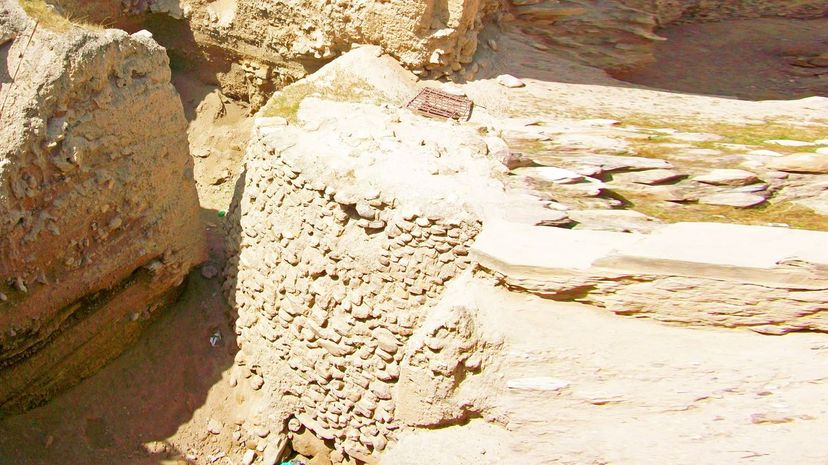
The walls of Jericho surrounded the first city that the Israelites were to conquer in the conquest of Canaan. To bring down the walls, they marched around the city for seven days, finally sounding their trumpets on the seventh day which sent the walls to the ground.

Othniel gained his fame from conquering the city of Debir by defeating the Canaanites who lived there. Once the victory was achieved, Othniel was given a wife, Achsah, the daughter of Caleb, as a reward.
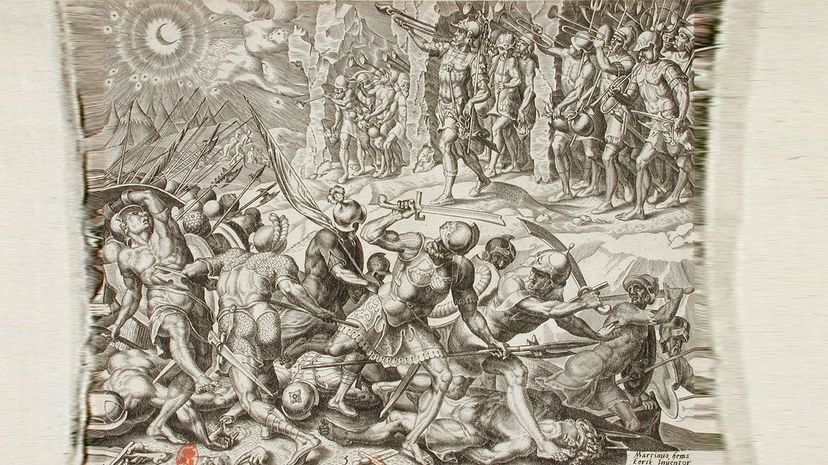
When Gideon initially raised an army, there were over 32,000 soldiers employed, but God decided that this was too many people for him to deliver a victory for the Israelites. God eventually selected 300 soldiers to follow Gideon, telling them that this will make the soldiers humble in their victory.
Advertisement

It was love that brought about Samson's downfall, as he revealed to a woman named Delilah the secret of his strength. Knowing this, she had his hair cut and betrayed him to the Philistines who gouged out his eyes and shackled him as a prisoner.

In the Bible, Eli failed to stop the wicked ways of his two sons, Hophni and Phineas, who were well-known for their bad behavior. God turned against them, bringing bad luck and death to the two sons during a battle with the Philistines. After hearing the news, Eli fell from his seat and broke his neck.
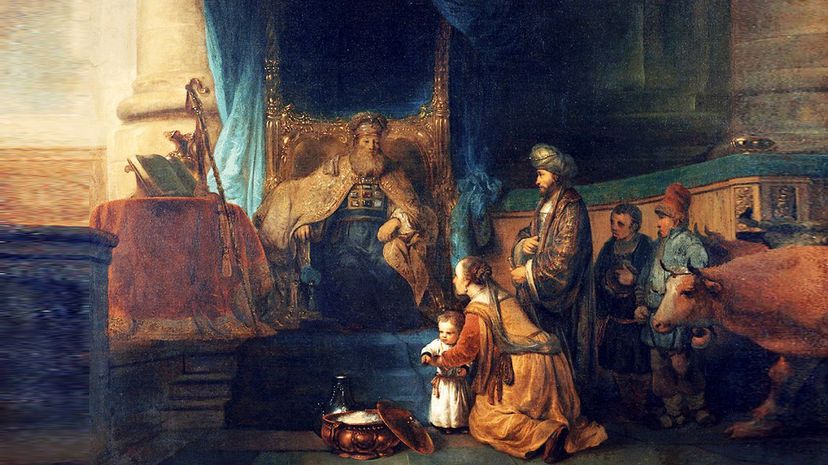
Unlike most other nations at the time, the Israelites did not have a king, and as Samuel aged, the question of succession became a prominent talking point. Samuel decided to anoint a king rather than wait for another judge to be appointed.
Advertisement
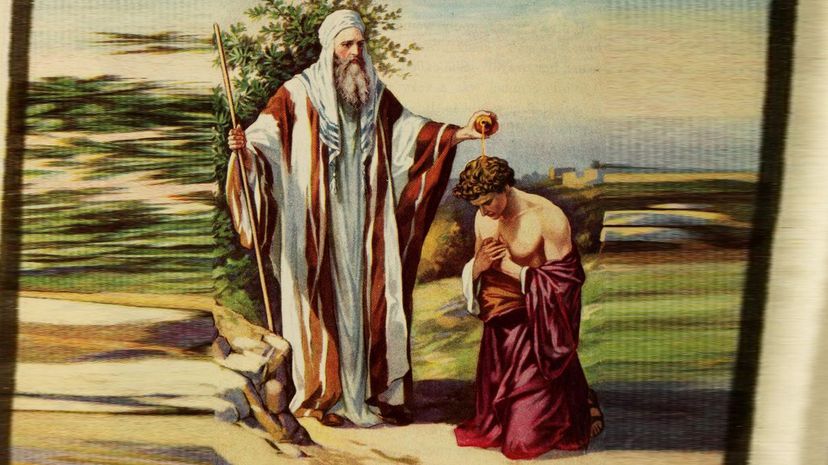
The Amaleks were an important tribe in the Bible, and they were reported as the first tribe the Israelites were contested against after crossing the Sea of Reeds. According to archaeologists, these early encounters might not have occurred but were instead drawn from later conflicts that took place.
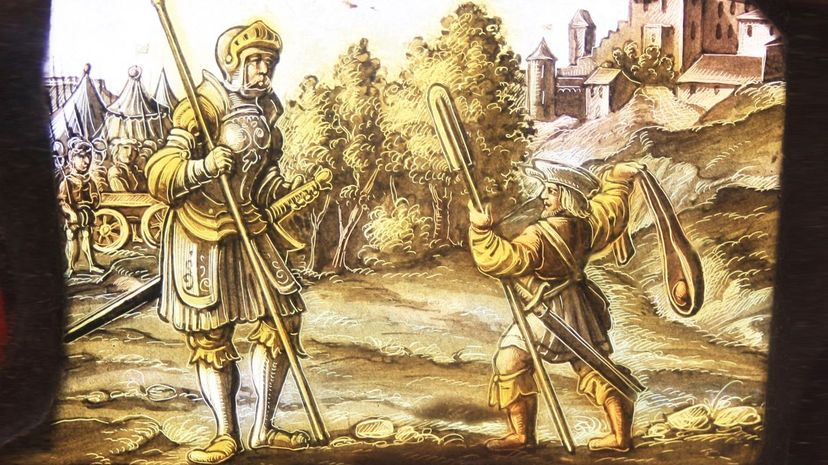
The tale of David and Goliath is one that has been played out throughout history, from military victories to sporting accomplishments. After all, the story of a shepherd who defeats a giant with the cast of a single stone is easy to be prideful about.

Dating back over 3,000 years, the city of Jerusalem has fallen into the hands of several different empires throughout its history. Those empires include the Persians, Romans, Ottomans, and British.
Advertisement
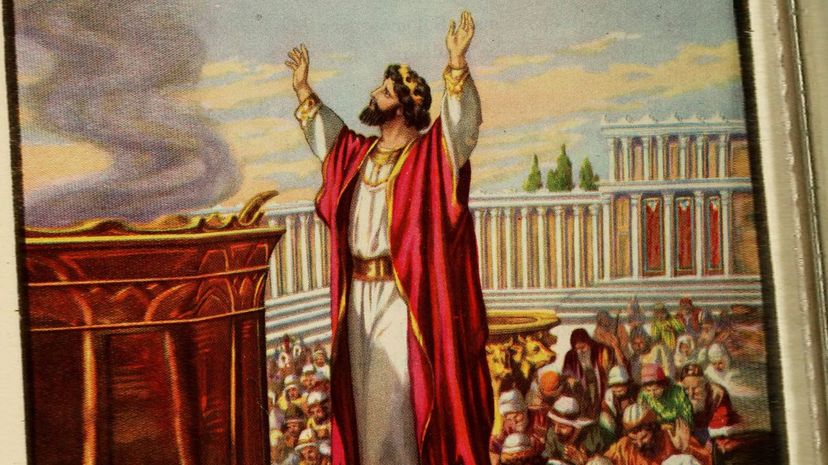
Also known as Solomon's Temple, the First Temple in Jerusalem was built to honor God and to house the Ark of the Covenant. The temple lasted until Jerusalem was sieged and destroyed by Nebuchadnezzar II around 587 BC.
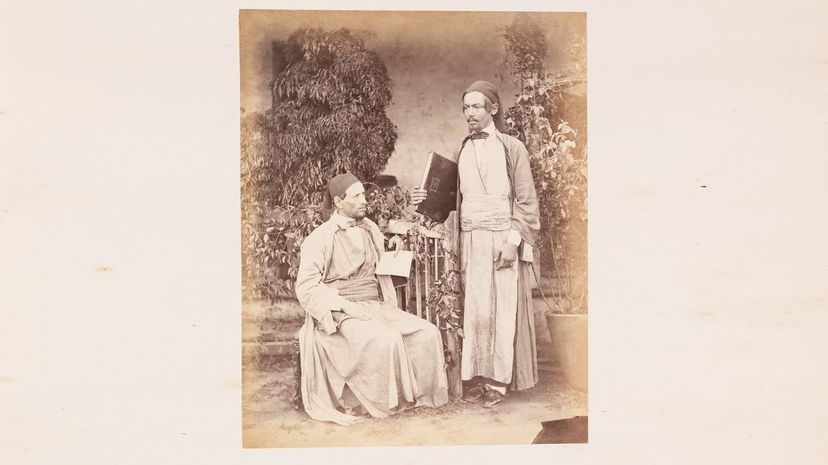
According to tradition, the 12 tribes of Israel were all decedents from the 12 sons of Jacob. Their names were Reuben, Simeon, Levi, Judah, Dan, Naphtali, Gad, Asher, Issachar, Zebulun, Joseph and Benjamin.

In the Old Testament, Daniel was an important leader under King Darius, who ruled over Babylon. However, when Darius passed a law that required Daniel to turn against God and worship him instead, Daniel refused and was cast into the lion's den. Miraculously, he survived.
Advertisement
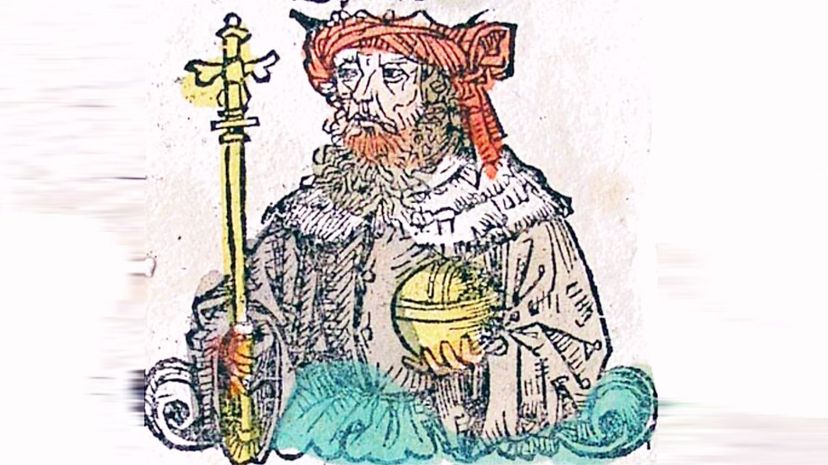
Cyrus the Great came to power, ruling over the Achaemenid Dynasty, after the death of his father, Cambyses I. Cyrus was a great conqueror, expanding the reach of the Persians, but he was also tolerant of those who were his subjects, providing religious freedoms if they followed him.
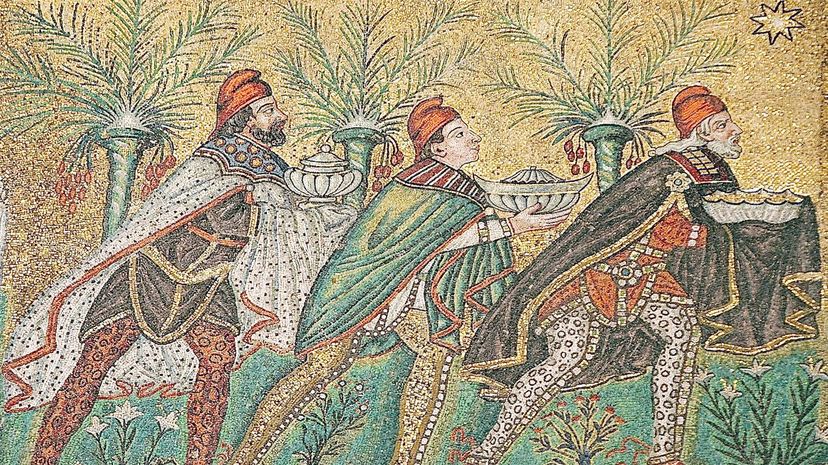
The three wise men, also known as magi, were most likely advisors to the king. These advisors were some of the brightest minds at the time, utilizing the stars and dreams to make predictions about the future.
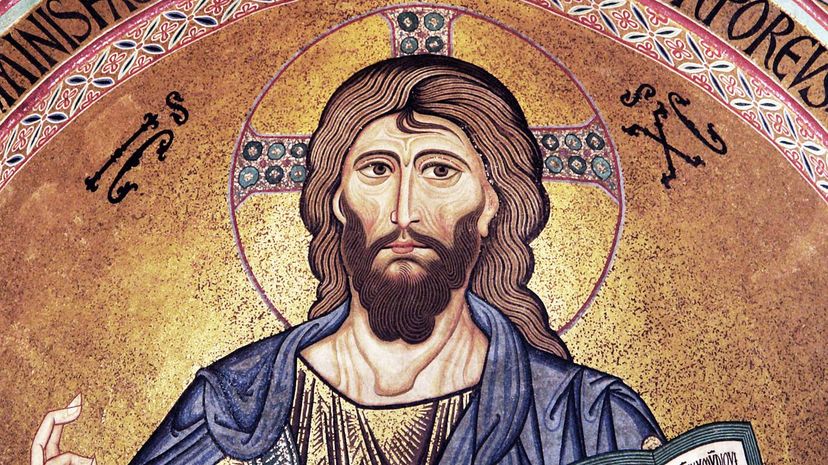
As Christianity became prominent in slave communities across the American South, the Jordan River became a central theme in many of their songs. The river was used as a representation of freedom.
Advertisement
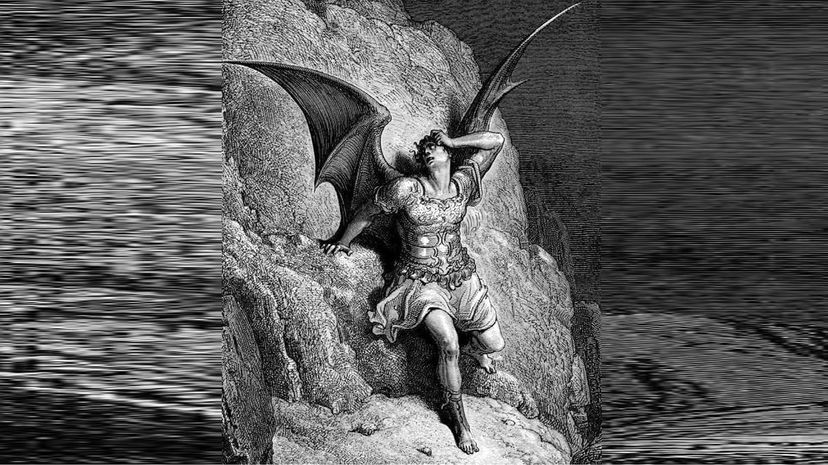
The number 40 comes up several times in the Bible, starting in the Old Testament. Typically, the figure depicts a time of trial or punishment like when God flooded the earth for 40 days and 40 nights in the Book of Genesis.
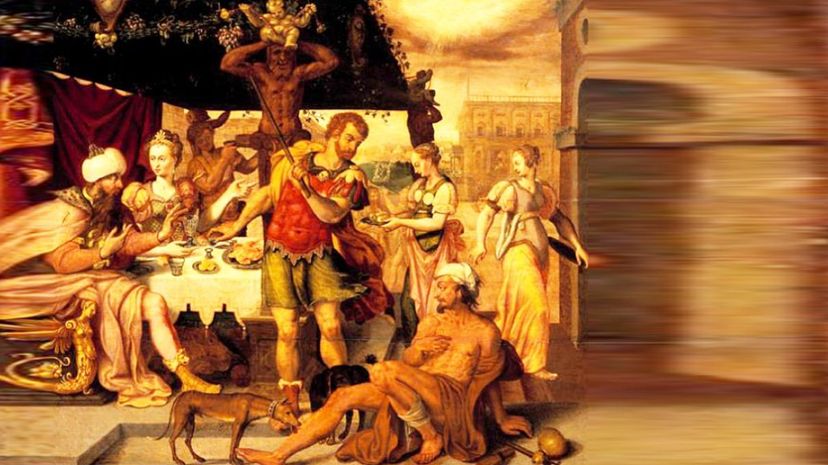
According to the Bible, Lazarus of Bethany had been dead and buried for four days before Jesus resurrected him. In the Book of John, this story is told as the last miracle Jesus performed before his resurrection.
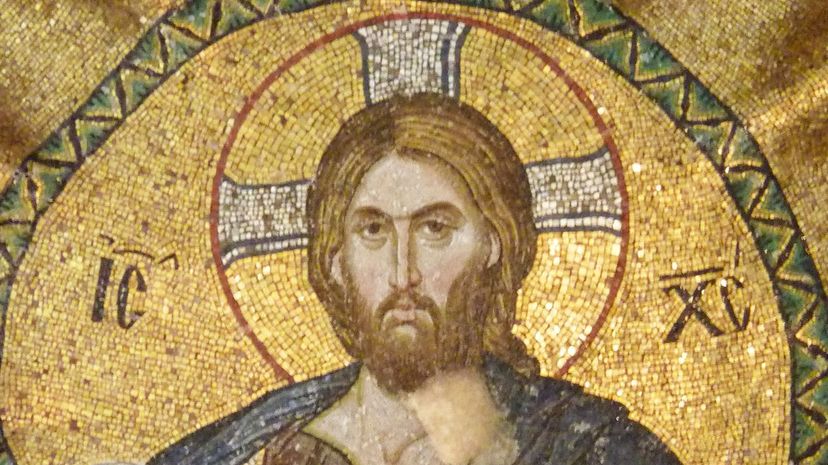
After Peter was granted the task of carrying on the church of Christ, he traveled to Rome to continue his preachings. While in Rome, he was martyred for his faith. Since his death, popes in the Catholic Church have claimed their authority from him.
Advertisement

Jerusalem was under Roman control during the time of Jesus. Jewish leaders living in Jerusalem were able to convince their Roman occupiers that Jesus was a threat to their rule since he claimed to be the King of Israel.

As Christianity spread throughout the Roman Empire during its early years, the Romans feared the Christians, though not necessarily for their faith. Instead, they thought the Christians were cannibals because they didn't understand that the sacrament was bread and wine.
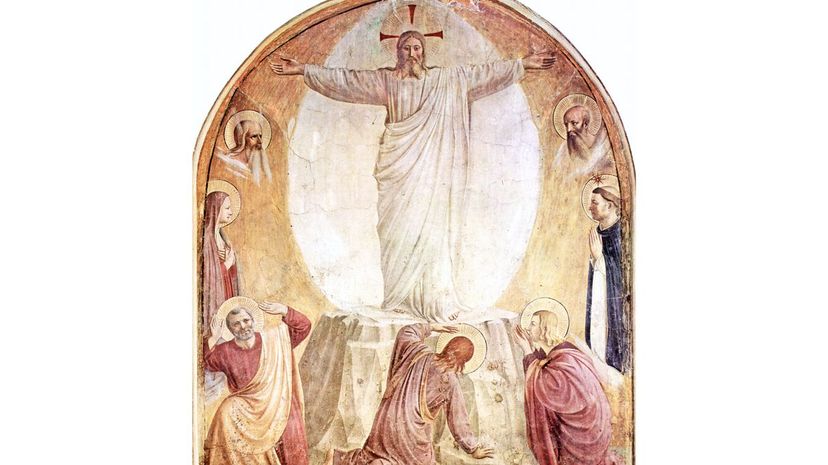
For centuries, the Mount of Olives was used as a Jewish cemetery, holding thousands of graves. Today, the mount is a famous site for pilgrims who travel to Jerusalem from all over the world.
Advertisement

The Book of Matthew is the first gospel in the New Testament of the Bible. Most likely written in the first century, the book tells the story of the life of Jesus, his death and resurrection.
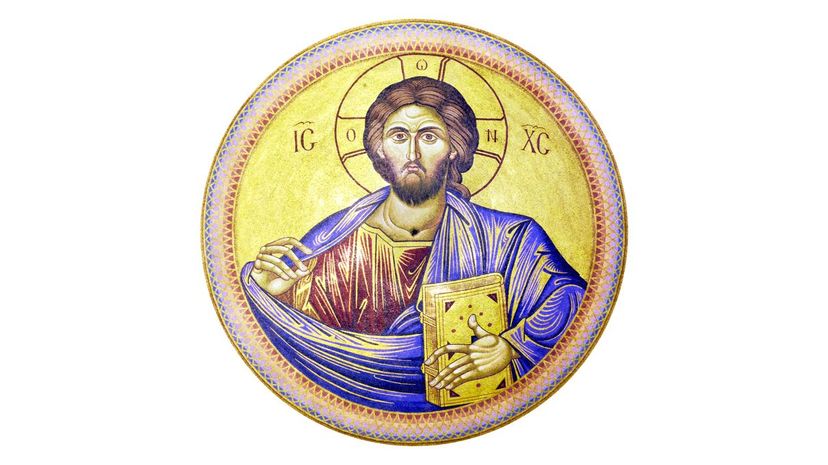
According to the gospel, the crown of thorns was placed upon the head of Jesus by the Romans. They then bent a knee to mock him by claiming he was "King of the Jews," a title his followers used.

Fish, called "dag" in Hebrew, comes up several times throughout the Bible in both the Old and New Testaments. When it does come up, the term is often associated with growth and fertility.
Advertisement

As the combatant of the enemies of God, Michael is associated with defending God's rule in Biblical tradition. Some scholars have determined that Michael is actually Jesus, as his name in heaven is different than that on earth.